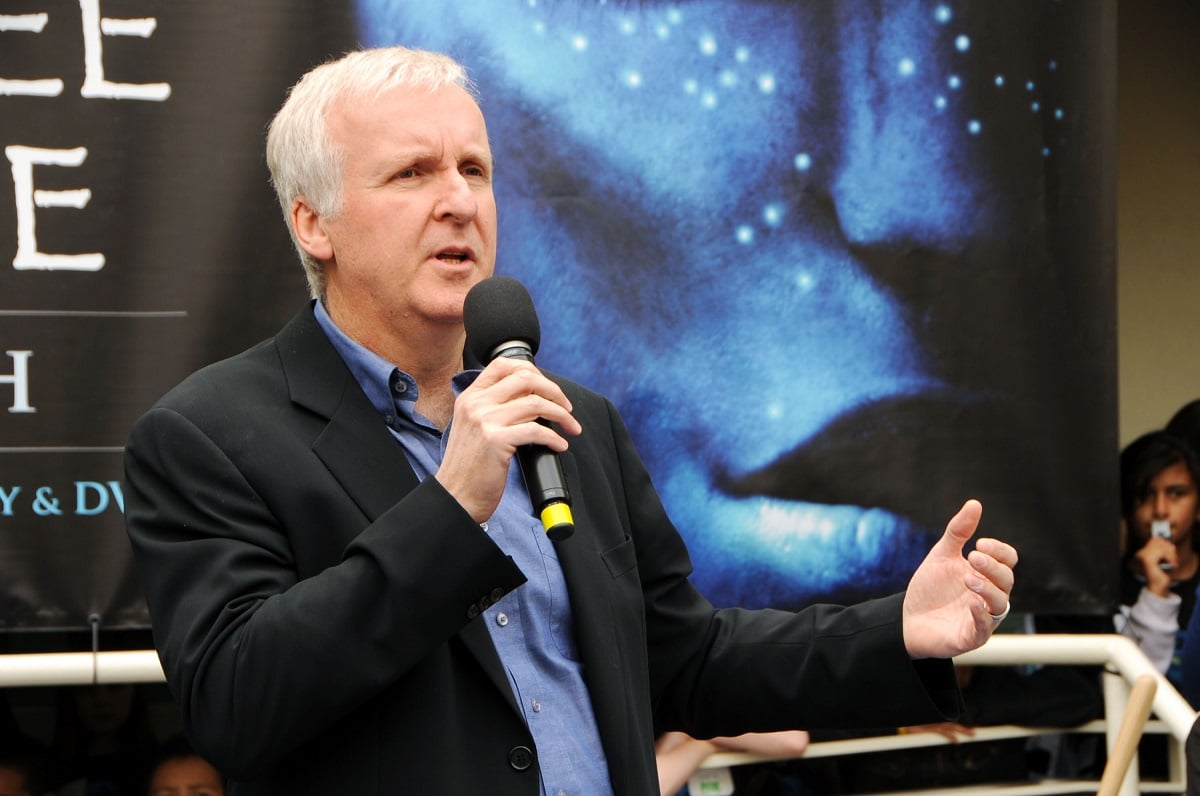
James Cameron Didn’t Think It Was Realistic for a Movie to Topple ‘Titanic’
James Cameron broke many records and made history when his movie Titanic came out in 1997. After it became the highest grossing film of all time at one point, Cameron doubted another movie could replicate that success. Including his own 2009 film Avatar.
James Cameron used his ‘Titanic’ success to reject studio notes for ‘Avatar’

Cameron’s Titanic was one of the filmmaker’s most successful contributions to films. Apart from scoring a couple of Oscars, it also reigned on top for years as Hollywood’s highest grossing film. After taking a hiatus from directing, Cameron would return to the director’s chair for his passion project Avatar. The 2009 movie marked Cameron’s return to sci-fi films, a genre that he was very familiar with.
But as is the case with certain films, the studio behind Avatar tried to meddle with Cameron’s movie by offering him notes.
“I think I felt, at the time, that we clashed over certain things,” Cameron once told the New York Times. “For example, the studio felt that the film should be shorter and that there was too much flying around on the ikran — what the humans call the banshees.”
They were suggestions that Cameron didn’t appreciate. After much push back from the studio, the filmmaker decided to use his Titanic success as a bargaining chip.
“Well, it turns out that’s what the audience loved the most, in terms of our exit polling and data gathering. And that’s a place where I just drew a line in the sand and said, ‘You know what? I made Titanic. This building that we’re meeting in right now, this new half-billion dollar complex on your lot? Titanic paid for that, so I get to do this.’ And afterward, they thanked me,” he revealed.
James Cameron didn’t think it was realistic to beat the box-office success of ‘Titanic’
Cameron knew that there was enormous pressure on Avatar when it first started gearing up to debut. Given the filmmaker’s impressive reputation, he understood why fans expected so much out of his work.
“I think there is obviously a lot of expectation whenever a filmmaker that people know – through films like Titanic or Aliens or Terminator or whatever – there’s always an expectation,” Cameron once told MTV News. “There’s a lot of expectation around this film, and I guess I knew that would happen unless I made a romantic comedy or something.”
However, at the same time he didn’t expect Avatar to repeat the same business as Titanic did. As long as the sci-fi feature met financial expectations, Cameron would’ve been satisfied.
“I don’t think it’s realistic to try and topple Titanic off its perch,” Cameron said. “Some pretty good movies have come out in the last few years, and Titanic just struck some sort of chord. Obviously, we’re hoping that Avatar is successful at some level.”
But Avatar would go on to exceed expectations. It not only matched Titanic’s success, but surpassed it. It currently sits at $2.9 billion at the box-office according to The-Numbers. Only Avengers: Endgame has managed to topple Avatar’s box-office, but the film quickly reclaimed its spot at the top when it was re-released in theaters.
James Cameron is taking a wait and see approach on ‘Avatar: The Way of Water’
Similarly to the first Avatar, Cameron has measured his expectations for the movie’s sequel. The rest of the Avatar franchise depends on the success of The Way of Water. Despite the original movie’s success, Cameron still considers the sequel as a bit of a gamble.
“Yeah, it’s a big play. It’s a big bet. And we won’t know where we are until the second or third weekend. The success of the first film — we had a pretty good opening at $75 million,” Cameron once told the Associated Press. “But openings are dwarfing that by factors of two or even three these days. Even if we have a stellar opening, we won’t really know where we are for a couple weeks because it was the return visits on the first one. It was people wanting to go share. If we get that again, we’ll probably be on solid ground.”
The film industry isn’t the same as it was several years ago. With Hollywood constantly growing and evolving, Cameron isn’t certain the odds favor the sequel’s triumph in modern times.
“The market has changed. Twenty-five percent could be our entire margin. It’s one thing to make a lot of money, it’s another thing to actually make a profit. We’re not going to keep making movies that lose money even though they look good and make a ton of money. This is a wait-and-see, let’s-put-it-out-there-and-see-if-people-embrace-it kind of situation,” he added.


